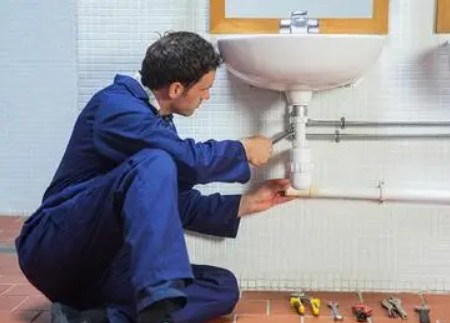In today’s fast-paced and technology-driven world, high-quality manufacturing is critical to the success of nearly every industry. From aerospace to automotive, medical devices to electronics, the need for precision parts is at an all-time high. This is where precision machining San Diego comes into play. It is the foundation of producing CNC machined parts with unparalleled accuracy and consistency.
In this article, we will explore the process of precision machining, its benefits, and why it’s essential for high-quality manufacturing. Whether you’re an engineer, designer, or business owner, understanding precision machining can help you make better decisions for your manufacturing needs.
What is Precision Machining?
Precision machining refers to the process of using computer-controlled machinery, such as CNC machining, to produce parts that require high levels of accuracy and tight tolerances. Unlike traditional machining methods, precision machining relies on advanced technology to ensure that each part is manufactured to exact specifications, ensuring consistency and performance.
A key aspect of precision machining is its ability to create complex, intricate designs that cannot be achieved with manual labor or standard machining processes. This is particularly valuable for industries where the functionality and reliability of a part are of the utmost importance, such as the aerospace, automotive, medical, and electronics industries.
How Does Precision Machining Work?
Precision machining involves various techniques, all of which require specialized equipment, tools, and a skilled operator to ensure the highest standards of quality. One of the most commonly used methods is CNC machining, which stands for Computer Numerical Control machining. Here’s a step-by-step overview of how precision machining works:
• Design and Blueprint: The first step is creating a detailed 3D design or blueprint of the part to be produced. This digital model is used to generate a G-code, which contains the specific instructions for the CNC machine.
• Material Selection: Based on the design and intended use, the right material is selected. Whether it’s metals, plastics, or composites, precision machining can work with a wide range of materials.
• CNC Machining Setup: After selecting the material, the machining shop sets up the CNC machine. The raw material is secured, and the proper tools are installed to perform the required operations, such as cutting, drilling, or milling.
• Machining Process: The CNC machine follows the G-code instructions to remove material from the workpiece, shaping it according to the design. The process is highly automated, reducing the risk of human error.
• Finishing and Inspection: Once the machining process is complete, the part undergoes finishing steps such as polishing, deburring, or coating. The part is then inspected to ensure it meets all dimensional and surface quality requirements.
Benefits of Precision Machining
The use of precision machining offers several advantages for manufacturers looking to produce high-quality, reliable parts. Some of the key benefits include:
1. Unmatched Accuracy and Consistency
The most significant benefit of precision machining is its ability to produce parts with exceptional accuracy. With CNC technology, the machine follows precise instructions to create parts that adhere to tight tolerances, ensuring that each part is consistent in size and shape. This makes precision machining ideal for industries where high reliability and performance are essential, such as aerospace or medical devices.
2. Complexity Made Easy
One of the unique aspects of CNC machining is its ability to produce complex geometries that would be difficult or impossible to achieve with traditional manufacturing methods. Whether it’s intricate features, curved surfaces, or detailed patterns, CNC machined parts can be manufactured with ease, providing manufacturers with unparalleled design freedom.
3. Faster Production Times
While precision machining involves advanced technology, it also streamlines the production process. CNC machines can operate continuously, minimizing downtime and significantly reducing production time, especially for large batches of parts. This makes precision machining an excellent option for both prototype and high-volume production.
4. Reduced Human Error
Because precision machining is largely automated, there is less risk of human error. This leads to fewer defects and improved overall product quality. CNC machines can repeat the same operation multiple times with identical results, ensuring consistency across all parts produced.
CNC Machining vs. Traditional Machining: Why Choose CNC?
When it comes to precision machining, CNC machining stands out from traditional machining methods. Here’s a breakdown of why CNC machining is often the better choice:
Automation and Control
CNC machining relies on computerized controls, reducing the need for manual intervention. Traditional machining requires skilled labor to guide the machines, which can lead to variations in the final product. In contrast, CNC machining ensures that each part is made with the same precision and accuracy, reducing variability.
Complexity and Flexibility
While traditional methods like manual milling and turning are limited in their ability to handle intricate designs, CNC machining is highly versatile. It can handle multi-axis cuts and produce complex parts that would be impossible with older methods.
Cost-Effectiveness
Though CNC machining may have a higher upfront cost, it is more cost-effective in the long run for high-volume production. The ability to make intricate designs quickly and accurately eliminates the need for specialized tooling, saving time and reducing costs per part.
Finding the Right Machining Shop for Precision Machining
When searching for a machining shop to handle your precision machining needs, it’s essential to choose one with the right experience and capabilities. Here are some key factors to consider:
1. Experience and Reputation
Look for a machining shop that has a proven track record of producing high-quality CNC machined parts. Ask for case studies or testimonials from previous clients to ensure they have experience in your specific industry.
2. Technology and Equipment
Ensure the machining shop has state-of-the-art equipment that can handle the complexities of precision machining. CNC machines, multi-axis mills, and other advanced tools are crucial for producing high-quality parts.
3. Quality Control
A reliable machining shop will have a robust quality control process in place. Ask about their inspection methods to ensure that the parts they produce meet your specifications.
4. Lead Times and Customer Service
If you’re working on a tight schedule, it’s important to find a shop that can meet your lead-time requirements without compromising on quality. Additionally, excellent customer service will ensure smooth communication throughout the process.
Conclusion
In conclusion, precision machining is an essential process for manufacturing high-quality, reliable parts that meet strict performance standards. Whether you are looking to produce complex cnc machined parts San Diego for aerospace, automotive, or medical industries, the accuracy and efficiency of CNC machining will ensure that your parts are produced with precision and consistency.
Choosing the right machining shop is crucial to the success of your project. With the right tools, expertise, and quality control processes in place, precision machining offers countless benefits, from reduced human error to faster production times and the ability to create complex, intricate designs.
By understanding the fundamentals of precision machining, you can make informed decisions and ensure that your next manufacturing project is a success. Whether you’re producing prototypes or high-volume runs, CNC machining is the key to achieving superior product quality and performance.


